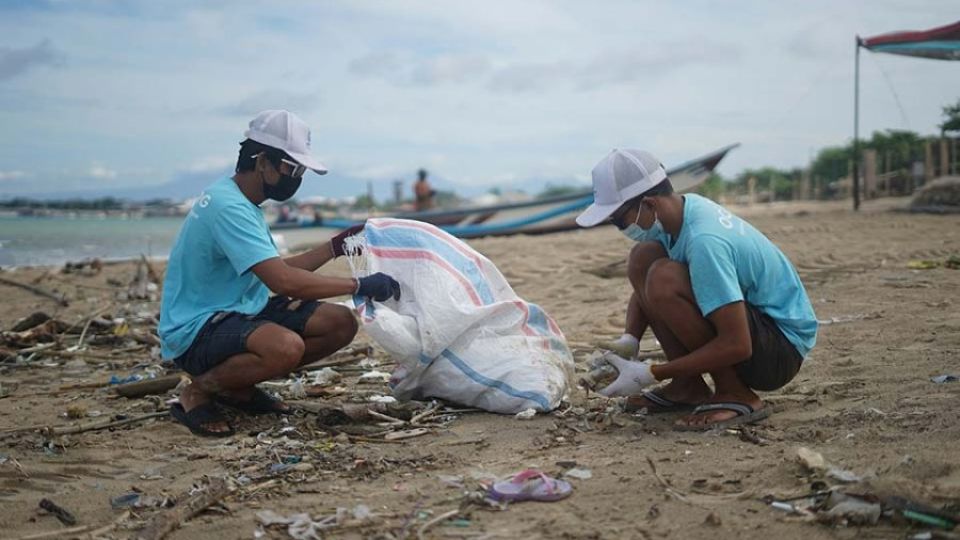August 30, 2024
JAKARTA – Indonesia is importing growing amounts of paper and plastic scrap but remains ill-prepared to process the material, which is aggravating the country’s already immense waste problem.
Paper scrap imports rose by 6 percent to 3.24 million tonnes last year, while plastic scrap imports skyrocketed by 30 percent to 252,472 tonnes, Statistics Indonesia (BPS) data show.
To deal with the incoming shipments in a sustainable way, industry players and experts have called on the government to develop recycling industries as well as waste management infrastructure.
Saut Marpaung, chairman of the Indonesia Waste Entrepreneurs Association (APSI), said imported scrap always contained worthless residues that could not be processed.
“The waste-processing industry is developing at a slower rate than the growth in the amount of waste in society,” he told The Jakarta Post on Thursday, adding that the main problem with waste mismanagement in Indonesia was the minuscule public funds available for building a proper waste management system.
“This is a task that must be solved immediately by the Prabowo-Gibran government,” he added with respect to the incoming administration of president-elect Prabowo Subianto and vice-president elect Gibran Rakabuming Raka set to assume office in October.
Read also: Citarum’s river of trash points to waste management fail
The Environment and Forestry Ministry’s waste management director general, Rosa Vivien Ratnawati, said importers of nontoxic materials, including paper and plastic scraps, had to use all of the scraps as raw materials.
She underlined that the scraps had to be homogenous, sorted, not derived from landfills and not mixed with other types of scraps.
“A pre-shipment inspection will be carried out to ensure the impurities percentage is not more than 2 percent,” she said, adding that importers had to obtain a recommendation letter from her ministry as well as an import permit from the Trade Ministry.
Stricter rules demanded for scrap imports
Alaika Rahmatullah, plastics audit coordinator at advocacy group Ecological Observation and Wetland Conservations (Ecoton), said 60 to 82 percent of Australian paper waste shipped to Indonesia was not recyclable as it was contaminated with flexible plastic scrap, plastic layers or plastic packaging and was therefore piling up at illegal dump sites in East Java and elsewhere.
“This is adding to the waste accumulation problem. The only imported waste that is taken [for processing] is [uncontaminated] paper, but the [plastic-containing] part cannot be processed, so it is simply dumped in villages around paper factories. Some of it is burned or even used as cooking fuel for the production of tofu, crackers [and other food],” he told the Post on Thursday.
Australia, the European Union and the United States were the top three sources of waste, including paper and paperboard, shipped to Indonesia in 2023, according to World Integrated Trade Solution (WITS) data. They exported 269,772 tonnes, 121,653 tonnes and 78,074 tonnes to the archipelago, respectively.
While Australia’s paper waste exports to Indonesia declined by 16 percent year-on-year (yoy), shipments from the EU and the US increased by 70 percent and 50 percent yoy, respectively, the WITS data show.
Read also: UAE nonprofit organization to help Indonesia tackle plastic waste
Alaika urged the government to strictly supervise paper scrap imports to ensure that impurities remained below 2 percent.
He suggested prohibiting entirely imports of plastic scraps as well as of waste and scraps of vinyl chloride polymers, as defined under Harmonized System (HS) code 391530, since these could not be recycled and may release dioxin when heated or burned.
“The government should stop plastic [scraps] imports, like China does. They stopped plastic imports, so now these [scraps] are shipped to countries like Indonesia and Malaysia,” he said.
Stagnant recycled plastic industry development
“Only a fraction of plastic waste is absorbed by the recycling industry,” Indonesian Plastic Recycling Association (ADUPI) secretary-general Edy Supriyanto told the Post on Thursday, putting the figure at 10 to 12 percent.
Some recycled plastic materials were in relatively high demand, such as polyethylene terephthalate (PET) used for bottled water, he explained, but production of other types of plastic was limited to the micro, small and medium enterprises (MSMEs) level.
“So it’s impossible to get locally produced recycled plastic to become a substitute for virgin plastic. We also don’t have the technology to do so,” Edy said. He suggested the government reduce the value-added tax (VAT) on recycled plastic from 11 percent to 5 percent or lower to boost the industry.
“What we process is used goods, which we then [turn into] useful products. There must be an incentive here.”
According to Industry Ministry data, Indonesia has 241 plastic recycling facilities worth around Rp 20 trillion with a combined annual production capacity of 2.54 million tonnes.
Andang Wirawan Setiabudi, a University of Indonesia researcher studying the use of fiscal incentives to increase the recycling industry’s capacity, said direct subsidies for sorting plastic waste and VAT waivers for recycled plastic pellets, among other incentives, could encourage industry growth.
“The right fiscal policy can significantly increase the recycling industry’s processing capacity,” Andang said on July 4, as reported by Antara.


